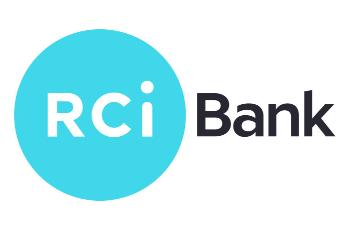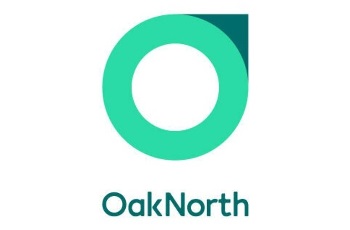This comparison simply includes all savings accounts.
Pensioner Bond Maturity - 5 Ideas For Your Cash
£500 bonus to boost your savings if you receive a residential purchase mortgage offer from Leeds Building Society
Chance to win £1,000. Open a new 95-Day Notice Base Rate Tracker account between 12th and 20th February 2026, deposit at least £2,000, and you could be in the draw to win up to £1,000
Pensioner Bond Maturity
5 Ideas For Your Cash
In January 2015, an agency of the government called National Savings and Investments (NS&I) introduced a special fixed rate bond, which was specifically designed for those over 65.
This special fixed rate bond, also known as the pensioner bond, was made available to try and encourage more pensioners to put money aside for their retirement.
The pensioner bond offered some of the most competitive interest on the market. The NS&I had two separate bonds with different fixed terms: the one year bond, which had an interest rate of 2.8%, and the three year bond with 4% annual interest.
From January 2018 Pensioner Bonds will begin to mature
Features Of Fixed Rate Pensioner Bonds
The two pensioner bond options had the ability to allow savings to grow significantly over the lifetime of the bond. They had a minimum deposit of £500 and a maximum deposit of £10,000.
Unlike other fixed rate bonds, where you are sometimes offered a short period of time at the start of the fixed term to change your deposit, with the pensioner bond there was no cooling off period and your decision to deposit the money was final.
If you wanted to withdraw any savings from the fixed rate bond within the fixed term, you incurred a penalty equal to 90 days’ of interest.
Tax
From April 2016, basic rate tax payers could earn up to £1,000 in interest without paying tax and higher tax rate payers can earn up to £500 in interest before paying tax.
As the pensioners bond was available prior to the new tax rules, anyone who took out a bond in 2015 was only subject to the old tax rules for one year.
Although these fixed rate pensioners bonds were subject to tax, many felt that the rate of interest outweighed the tax their interest would incur. This was because the bonds' rates of interest were significantly higher than those offered with banks or building societies.
The Ability To Earn 4% Through Pensioner Bonds Has Gone
In May 2015, the NS&I withdrew the pensioner bond. At the time, the pensioner bond had one of the highest interest rate on the market. As the pensioner bond is no longer available, the ability to earn up to 4% on a three year fixed rate bond has disappeared.
The NS&I have launched a new pensioner bond that offers a much lower interest rate of 2.2%.
Pensioner Bond Matures
From January 2018, those who took out a three year fixed rate pensioner bond will receive their initially deposited capital, along with the interest accumulated over the course of the bond.
If you took out a three year fixed rate pension bond, then providing you did not make a withdrawal throughout the entire bond, you should receive your money and the 4% annual interest. For example if you deposited £10,000 then you will receive £11,300 when the bond matures.
The question that you may face now is what to do with your money upon maturity of your bond. Many who took out the pensioner bond might have intended to deposit their money into another pensioner bond, to access a similar competitive interest rate. However, now the ability to earn 4% interest through a pensioner bond is not available, it may be more difficult to decide what to do with your money.
If you want to change your savings strategy, you have to act quickly. This is because the NS&I will simply reinvest your money into their new bond, if you do not provide written instruction. In the event you fail to notify the NS&I, you will have an additional 30 days “cooling period” to do so.
It cannot be stressed harder that if your savings are re-invested into the NS&I new bond that pays only 2.2%, then you could see your return drop comparatively by 43% upon maturity.
Current Interest Rates
When faced with a decision about what to do with their savings, the majority of people will open a savings account. The problem with opening a savings account is that the interest rates offered are at record low levels. Whether it is an instant access account, regular savings accounts or easy access account, you are not likely to receive a high rate of interest.
There are some current accounts available that provide higher interest rates than some savings accounts. Banks are desperate for your business and a number of them offer attractive rates, cash back on bill payments and cash rewards for switching to their current account. It should be noted that these attractive rates of interest usually come with low thresholds, over which interest will not be paid.
Therefore, high interest rate current accounts may be a good option but only for smaller amounts. Some savers will begrudgingly deposit their money into savings accounts or current accounts and feel satisfied that they are earning at least some interest on their savings.
The issue with this mind-set is that current interest rates currently sit well below inflation. This means that if you deposit your savings into a fixed rate bond or savings account, the value of your money is decreasing in real terms.
How To Earn More Interest
If your three year fixed rate pensioner bond has recently matured, you are probably looking for a way to replicate the same amount of interest you enjoyed over the last three years.
The problem is that you will not receive 4% annual interest in the current market. Below we explore five different ways to access higher rates of interest and grow your savings.
5 Ideas For Your Cash
It may be worth exploring the option of using a combination of the ideas below. By splitting your savings into a selection of the options available to you, you could earn competitive rates of interest whilst enjoying a certain amount of capital protection.
1.Fixed Rate Bonds
Some of the best fixed rate bonds on the market provide better returns than the new NS&I bond. Therefore, depositing savings into another fixed rate bond with a bank or building society may be an attractive option.
Fixed rate bonds offer the opportunity to earn more interest in exchange for restricted access to your savings. Banks and building societies usually offer fixed rate bonds that run between 1 and 5 years. Typically, the longer fixed rate bonds offer the highest interest.
Fixed rate bonds are popular among savers, as they can allow you to earn a defined amount of interest with no risk to your capital.
Although some banks offer higher interest than the new NS&I bond, the rates of interest on offer are only marginally better and still do not counter the effect of inflation. In light of this you may wish to deposit a certain amount of your savings into a new fixed rate bond and split the rest between other options.
Click here for the best fixed rate bonds >>
Taking On More Risk
If cash products continue to offer a lower rate of interest than the prevailing rate of inflation, then savers will lose money in real terms.
Gone are the days where you could earn competitive interest from high street cash products, if you want to get the equivalent yield of 4% or more, you may have to consider taking on more risk.
But whilst the combination of low savings rates and high inflation may force more of us to consider investing, this raises the difficult question of taking on more risk in an attempt to replicate historical levels of income enjoyed from cash based products.
Below is a selection of options that, if you are prepared to take on more risk, may help you achieve higher returns on your savings.
2.Investec FTSE 3 Year Defensive Deposit Plan
The new 3 Year Defensive Deposit Plan from Investec offers the opportunity to receive 10% growth on your investment, which equates to a return of 3.3% each year.
The Plan is designed to run for 3 years and has a minimum investment of £3,000 and a maximum investment of £1,00,000. It also has the ability to earn tax-free return, if held in an ISA. (with a maximum deposit of £20,000).
The Plan compares the value of the FTSE at the beginning and at the end of the term. If the FTSE is above 90% of its starting value, then you will receive the fixed return of 10% (3.3% AER).
This gives you the potential to access higher interest rates than those on offer with cash based products.
It should be noted that the returns are not guaranteed. This means that, if the FTSE drops by 10% or more of its starting value, you will only receive the capital you initially invested.
Click here for the 3 Year Defensive Deposit Plan >>
3.Investec FTSE 5 Year Defensive Deposit Plan
Investec's new 5 Year Defensive Deposit Plan has the ability to provide 20% growth for your capital, which equates to 4% AER.
The Plan is designed to run for 5 years and has a minimum investment of £3,000 and a maximum investment of £1,00,000. It also has the ability to earn tax-free return if held in an ISA (with a maximum deposit of £20,000).
As with the 3 year option, the Plan is closely linked to the FTSE and will provide the return provided that the FTSE does not drop by 5% or more.
Click here for the 5 year Defensive Deposit Plan >>
Although the growth from both Investec Plans above is dependent on the performance of the FTSE, you are guaranteed to receive your capital in full at the end of the Plan.
This is because the Plan benefits from protection of the Financial Services Conduct Authority (FSCS), which means that whatever happens up to £85,000 of your capital is protect.
Risk v Reward
You may want to consider putting your capital at risk for the chance to access higher returns.
When it comes to capital at risk products there is always a question of risk versus reward. A good benchmark for assessing your fixed rate investment is to compare what you could get from a fixed rate deposit over a similar timeframe, and then consider whether you are prepared to accept the level of risk to your capital in return for the higher fixed rate.
Below are some capital at risk options that have the ability to provide higher returns than the majority of options on the market.
4.Peer To Peer Lending
There are some companies that offer peer to peer lending services, which is where you lend your money to a borrower for a set period of time.
The longer the agreed time, the higher the returns you could receive. For example there are some companies on the market that offer a return of 5% per month for a 5 year fixed term.
Although peer to peer lending has the potential to earn you high returns, it is important to note that peer to peer lending is a capital at risk option.
This means that you may lose a certain amount or all of your capital, if the borrowers do not repay.
5. Investec FTSE Defensive Income Plan
If are happy to lock up your money for a longer period of time, you want the potential to see some serious growth and you are happy to put your capital at risk, then Investec's FTSE Defensive Income Plan could be the option for you.
Investec's FTSE Defensive Income Plan has the ability to provide a return of 1.825% each quarter, which equates to 7.3% annual income.
The Plan is designed to run for 8 years and has a minimum investment of £3,000 and a maximum investment of £1,00,000. It also has the ability to earn tax-free return if held in an ISA (with a maximum deposit of £20,000).
Similarly to the other Investec Plans, this Plan is closely linked to the FTSE but the value of the FTSE is measured quarterly (instead of at the beginning and end of the Plan).
Therefore, so long as the FTSE does not drop by 20% or more from its starting value at the end of each quarter, the Plan will provide the 1.825% return. This means the FTSE can fall up to 81% of its starting value and you will still receive the quarterly return.
Although the Plan is designed to run for 8 years, it has the ability to kick out or mature early every quarter from the second year of the plan onwards. The Plan will only mature early if the FTSE increases by 5% of its starting value. In the event the Plan matures early, the capital and any return for that quarter is paid in full.
The Plan is a capital at risk product. The treatment of your capital is also dependent on the performance of the FTSE. If the FTSE drops by 40% or more of its starting value, then your capital will be affected. In the event that the FTSE does fall by 40% or more, your capital will reduce by 1% for every 1% the FTSE falls.
If you think that the FTSE is unlikely to fall significantly in the near future, then this might be a good option for you.
Click here for Investec FTSE Defensive Income Plan >>
Next Steps
Whatever you decide to do with the money you receive from you pensioner bond, you should do your homework.
Before using any capital at risk product, you need to do your research and understand the potential consequences.









